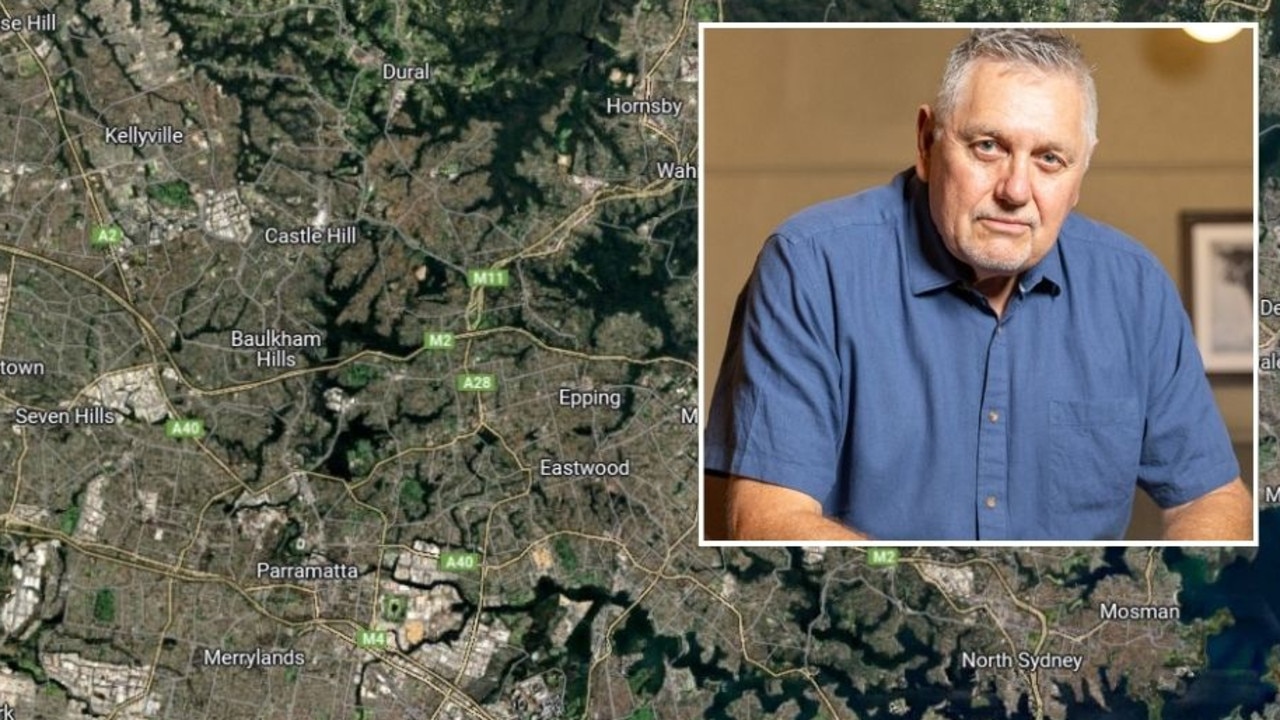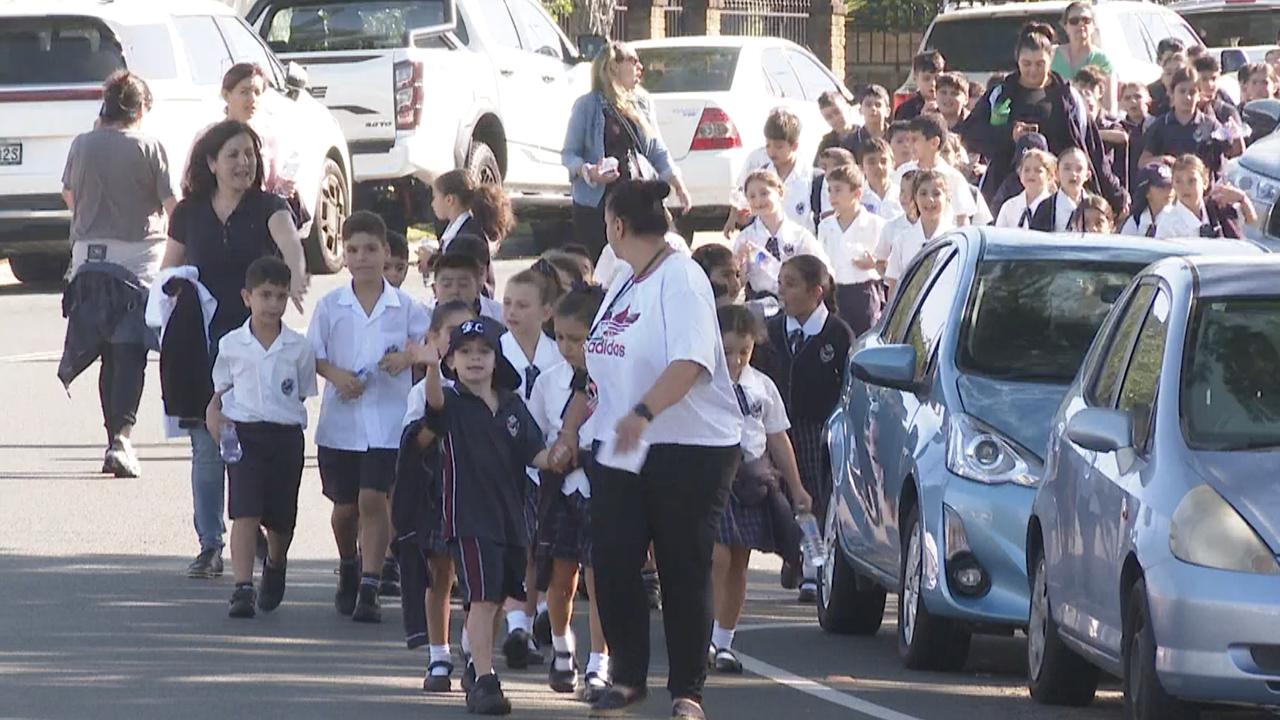NSW mouse plague: Farmers suffer through ‘worst natural disaster’
The smell. The sound. The damage. The mouse plague that’s bringing NSW farmers to their knees shows no signs of reprieve as they try to protect their homes and crops. Warning: Graphic images
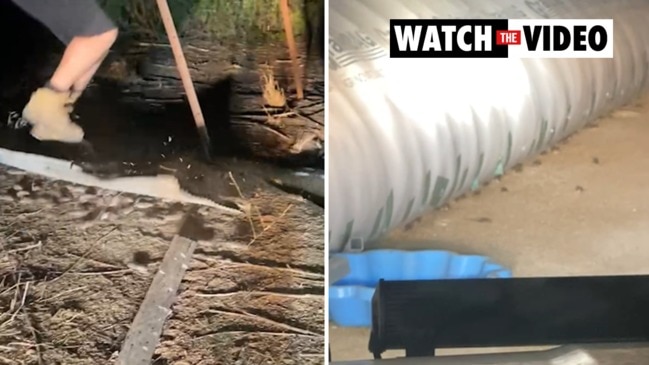
NSW
Don't miss out on the headlines from NSW. Followed categories will be added to My News.
Mice crawling in couch cushions, chewing through family treasures and crawling up bed sheets — this is the day-to-day life for those living in the NSW mouse plague.
Farmers, small businesses and even homes in regional towns are being decimated by hordes of mice with no end in sight.
Farming family Erin and Dave Anderson live on a property not far from Narrandera in southern NSW, and say the plague is one of the worst natural disasters they’ve lived through.
“We had to cut the back of the couch open to try and get one we could hear in the couch at one stage,” Ms Anderson said.
“We’ve got four cats and they look at us like the novelty has worn off … we’ve got a really old house with six or seven doors into the house so there’s so many ways they can get in.
“It’s exhausting.”
When Ms Anderson spotted the first mouse near her home on Boxing Day, she had no idea of the disaster to come.
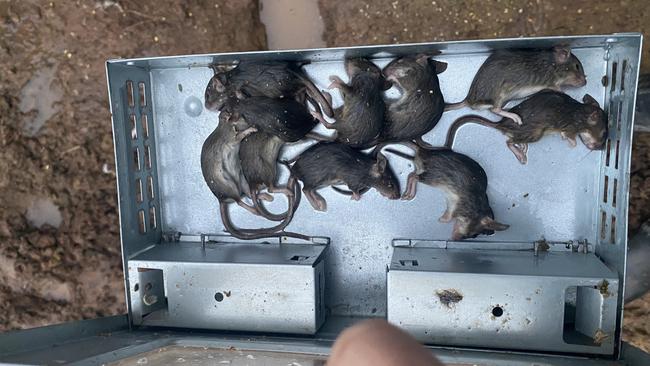
Now, living with mice in the house and on the farm has become the norm for her three sons, whose morning routine starts with emptying the traps around the house.
“This has been going on for way longer than people realise,” she said.
“We were catching 15 to 20 in the house a day at one point … [the boys] are pretty good at checking traps, they set their own little traps outside too with buckets.
“We have to bait because the trapping just isn’t enough and the smell of dead mice is just gross.
“When you’re driving around the property at night they are just everywhere.”
For Ms Anderson’s family and scores of farmers, the plague has destroyed hundred of thousands worth of farming equipment and crops.
The Andersons have spent close to $10,000 on bait and traps in a desperate attempt to save this year’s canola crops.
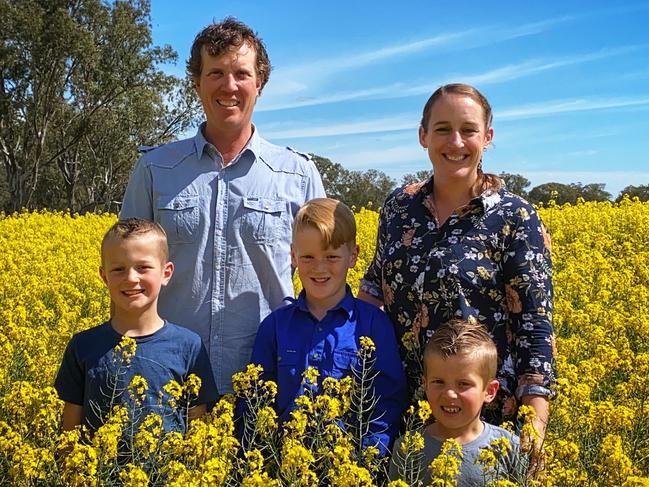
Lisa Minogue and her farming family live in the small village of Barmedman, near West Wyalong.
For Ms Minogue the constant smell of death and mouse urine has sent her to breaking point.
“Alive, dead, dying, smelling. It’s just putrid and quite distressing when you’re a house proud person and you like to keep it clean and tidy. Mice just don’t respect that,” she said.
“In the beginning we really noticed the mouse number ramping up, then it was the smell and visually seeing them running around.
“Then I went to get some towels out of the linen cupboard and they’d been all through the linen cupboard. That’s when a week long mouse hunt and massive clean up started.
“I’ve done 38 loads of washing in three days.”
You’d be forgiven for assuming the Minogues are moving house, with all loose items packed away in boxes and plastic tubs.
While her two sons are away at university, Ms Minogue has completely packed their bedroom, tipping the mattresses on their sides in an attempt to stop the mice making their nests there.
Finding dead mice in clothes is a day-to-day occurrence in the Minogue household, and the constant smell of death has the family feeling “demoralised”.
“In night lying in bed you can hear the mice running in and out of bait stations and you can hear them chewing the bait. You can hear them running around your bedroom,” she said.
All loose electrical cords have been moved away from the bed and all the bedding tucked in to stop the mice from climbing up into the bed.
“It makes you feel really dirty,” Ms Minogue said.
“My son wants to bring his new girlfriend home and I said no, you can’t subject somebody who is not accustomed to what a mouse plague is like, you can’t bring them home.”
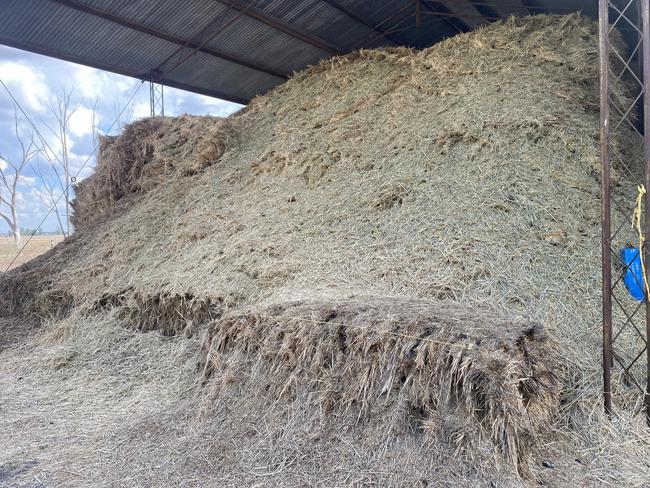
While Ms Minogue described herself as a resilient person, the months of plague have her emotions on edge.
“I’ve run out of bait for my bait stations, I’ve got more ordered and still waiting for it to come in … when I went into town to pick it up and was told it hadn’t come in yet, I almost burst into tears.”
Farmer Richard Bootle from Nyngan in central NSW said he can spot thousands of mice running around the property each night.
Inside his home, Mr Bootle said mice run around his loungeroom while he tries to watch television.
“They run inside the insulation in the airconditioner and chewing that out, chewing wires in our machinery. You wake up in the morning and you can hear them chewing away trying to get into the house,” he said.
“It’s a bit unnerving and it’s a constant battle.”
The plague has created hours of backbreaking work for farmers like Mr Bootle who have buried thousands of tonnes of hay and grain to keep the mice away.
Mr Bootle had to pay for a plane to drop bait from the sky, but the mice are still coming and farmers have more dead mice than they know how to get rid of.
Kasey Millstead from Yeoval in central western NSW said she had to throw away a whole pantry full of food after mice made a nest in her children’s sandwich bags.
“They chewed through the pantry, they chewed through the wiring of my big freezer so all the meat has gone. They wrecked my dryer,” she said.
“Shoes, socks, clothes, anything you can imagine.”
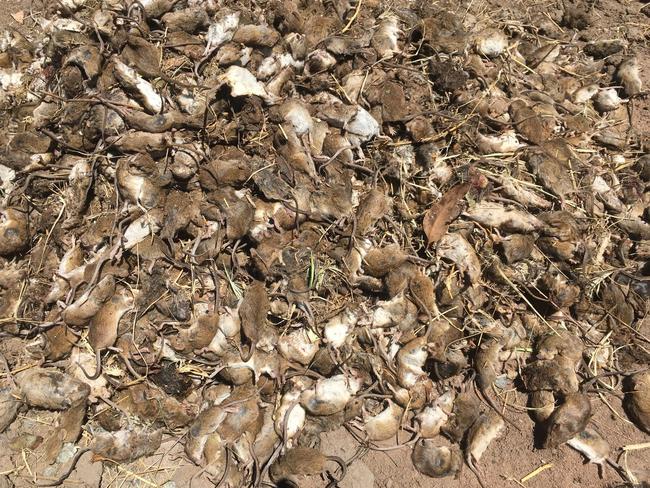
One of the most heartbreaking things Ms Millstead lost to the mice was a painting done by a dear family member.
“My uncle painted a picture 17 years ago of my two eldest boys that was on a canvas and they chewed right through that … it’s never-ending.
“I know people who have even been bitten on the finger in their sleep.”
It’s not just the smell, the destruction of belongings and hay — going from years of drought to one of the worst plagues they’ve seen has been heartbreaking for farmers like Brent Morton.
“This time of the year we are in the middle of farming crops so they are big days, I get home late at night and leave early in the morning and my wife is awake going around checking traps at 3am,” he said.
“She can hear them running around and she can’t sleep like that … it’s an older house you can hear them in the walls, you can hear them against the bed head and it makes it hard to sleep when you can hear that going on.”
For Mr Morton’s children, when they spotted the first mouse they were excited, but that excitement quickly turned to dread.
“Every morning they say there’s one in their bedroom or they could hear them. Our little daughter hops into bed with us because she can hear mice running around in her bedroom.”
The biggest blow came when Mr Morton was told he would have to re-sow his crops.
“Everyone was on such a high after last year, it was a record breaking year there was grain everywhere, everyone’s moral had picked up after the worst drought in a century,” Mr Morton said.
“We had fires, drought, floods and to turn around and be hit with the mouse plague we just throw our hand in the air and wonder what’s next.
“We’ve had to re-sow crops that we’ve planted already, wheat that they’ve nipped off.”
Mr Morton’s farm has spent $16,000 on one round of baiting alone, which is just one afternoon’s worth of bait.
For farmers like Mr Morton, the bill is piling up from damage to their homes, their priceless belongings, and their farms — a bill that will have to pay off for years to come.

